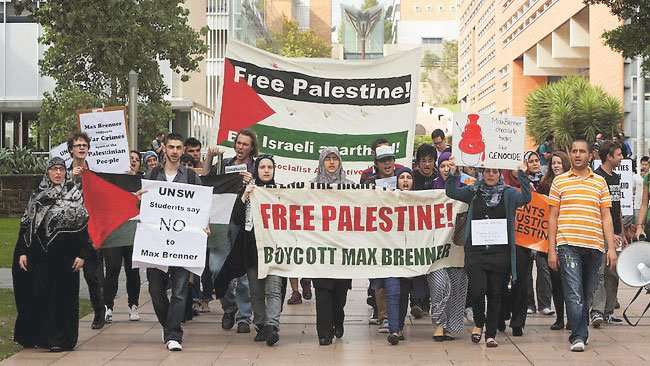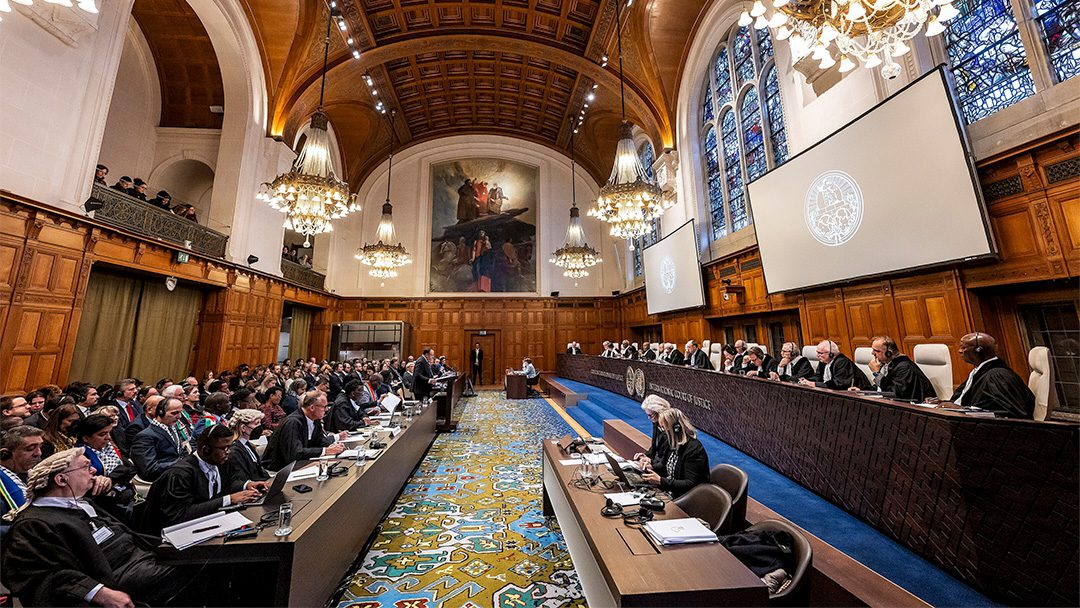The European Coalition for Israel (ECI) has recently released its European Report from 2014, which features interviews of Tomas Sandell, Andrew Tucker, and Matthijs de Blois, following the C4I International / ECI conference in Nijkerk in June 2014.
Its primary point of focus was the BDS movement, which is rife throughout Europe.
ECI is a joint initiative by major international Christian pro-Israel organisations to address the issue of growing anti-Semitism in Europe. The coalition was formally launched in Brussels in 2003, officially cementing long
term partnerships.
ECI informs political leaders in Brussels and throughout Europe about the complex realities of the conflict in the Middle East. Acknowledging the right for Israel-—the only democracy in the region—to exist within secure borders is a fundamental premise to this conversation.
The European Report of 2014 focuses on ECI’s work to counter the prominent BDS (Boycott, Divest, Sanctions) movement. BDS is a global campaign targeting Israel which applies economic and political pressure in attempts to disrupt the state’s exports.
The movement’s proponents regularly cite the alleged illegality of Jewish settlements in the Judean and Samarian disputed regions (commonly referred to as the West Bank).
Tomas Sandell (Founder and Director of ECI) highlights three major threats for Europe approaching June 2014:
- firstly, the threat of Jihadists returned from Syria;
- secondly, the rise of the European far right;
- and thirdly, the BDS movement which he labels ‘sophisticated anti-semitism’.
At the time of interview, the attacks of gunman Mehdi Nemmouche (a 29-year-old French national of Algerian origin) who opened fire and killed four people at the Jewish Museum of Belgium in Brussels, was at the forefront of the European conscious.
Also in late May were the eighth elections for the European Parliament. While Nick Griffin of the British National Party was not re-elected, the rise of the far right in Greece (Golden Dawn) and Hungary (Jobbik) signified cause for concern.
Sandell is careful to note that not every party which states opposition to integration is inherently far-right or anti-Semitic in orientation, and that strains of such a movement can be beneficial. Yet, he is cautious of Marine Le Pen’s French National Front, suggesting it will be unable to remove itself from a tarnished lineage, having been previously led by Marine’s father, convicted xenophobe and antisemite Jean Le Pen.
“By stressing that the territories today are not ‘occupied’, Jews will not be seen as illegal settlers. Thus, the sovereignty of the modern State of Israel ought to be the basis of contemporary negotiations.”
It was the purpose of Andrew Tucker (Executive Director of Christians for Israel International) to explain the rationale behind the BDS movement by unpacking its claim of being supported by international law. Proponents of the BDS movement claim international law as underpinning their position: thus, if such claims can be demonstrated to be unsubstantiated according to the law, then the consequential political activism will carry little weight.

University of New South Wales students protest for the boycotting of chocolate franchise Max Brenner, 2013
Specifically, the BDS movement claims international law holds Jewish settlements in the disputed territories to be illegal; that Israel must withdraw from these ‘occupied’ territories; and that a Palestinian state must be created.
The claim of illegality applied to Jewish settlement in the Judean and Samarian regions relies on the Fourth Geneva Convention, from which it is claimed that, first, occupied territories are illegal according to the Convention; and secondly, that the convention prohibits states from transferring their population into occupied territory.
Tucker begins by establishing the legitimacy of Israel’s ownership of the Judean and Samarian regions which it reclaimed in the 1967 Six Days War.
The BDS movement’s primary allegation relates to Article 49 of the Convention, which states, ‘The Occupying Power shall not deport or transfer parts of its own civilian population into the territory it occupies.’ Even if the Judean and Samarian regions were to be classified as ‘occupied’, Tucker makes clear that the Jewish settlements reflect an entirely different situation from those which Article 49 was written to address in 1949, namely Germany and Russia forcing mass migration into large areas of Europe with the intention of ethnic cleansing. Israel’s situation is completely different.
Jews have moved into the Judean and Samarian regions out of a deep conviction that they belong there in the lands of their forefathers; not to rid those places of Arabs, and not because the Israeli government has forced them to do so.
Both Andrew Tucker and Matthijs de Blois (Lecturer, University of Utrecht) advise that in order to confidently assert that the Judean and Samarian regions are not ‘occupied’, Israel’s ‘birth certificate’–of its right to be established as a Jewish state in the land–must be stressed. This ‘birth certificate’ was decreed well before WWII: at the San Remo conference, in the form of the British Mandate for Palestine.
By stressing that the territories today are not ‘occupied’, Jews will not be seen as illegal settlers. Thus, the sovereignty of the modern State of Israel ought to be the basis of contemporary negotiations.
De Blois points to Article 6 of the Mandate—the foundation of discussion regarding territorial disputes in the regions—as the legal basis upon which Jewish people have the right to settle in the land.
All interviewees go on to elucidate the ubiquitous influence of the BDS movement throughout Western Europe, and the significant role that Christians are playing in standing up to this insidious and subtle wave of anti-semitism. Sandell’s spirited conclusion emphasises the importance of only endorsing NGO’s and governments that align with our own values, ‘As citizens we should always use our voice, our vote. But also, our ability to shape opinions.’ In order to do this, we must be sure of what exactly those values are.












0 Comments